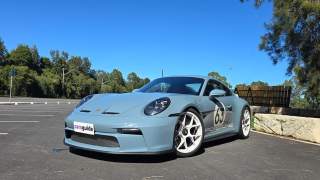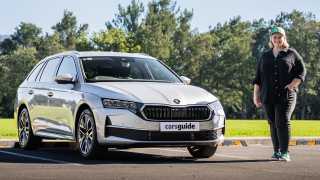
RECALL: Nearly 100,000 Hyundai i30 and Elantra cars and Sante Fe SUVs could catch fire
- Hyundai i30
- Hyundai Santa Fe
- Hyundai Elantra
- Hyundai News
- Hyundai Hatchback Range
- Hyundai Sedan Range
- Hyundai SUV Range
- Hatchback
- Sedan
- SUV
- Hyundai
- Industry news
- Showroom News
- Recalls
- Safety

Hyundai Australia has issued two recalls for 96,892 vehicles that pose fire risks, with one covering the i30 small hatch and Elantra small sedan, and the other pertaining to the Santa Fe large SUV.
The first recall involves 68,765 MY07-11 i30s (FD series) built from November 7, 2006, to December 14, 2010, and 18,734 MY06-11 Elantras (HD series) manufactured between August 17, 2005 and May 14, 2011.
Meanwhile, the second pertains to 9393 MY06-09 Santa Fes (CM series) built from March 16, 2005, to September 22, 2009.
Both involve a manufacturing error with the electronic control circuit board in the Anti-lock Braking System (ABS) of the aforementioned vehicles, which will short circuit when exposed to moisture.
If this occurs, there is a risk of a fire in the engine bay, even when the vehicle is switched off, as the electronic control circuit board is always powered.
As such, the risk of an accident, serious injury to vehicle occupants, other road users and bystanders; and property damage is increased.
It is worth noting, however, that a short circuit does not affect the functionality of the braking system.
According to Hyundai Australia, affected vehicles should be parked in an open space that is away from flammable materials and structures. As such, garage parking should be avoided.
Impacted owners will be contacted by Hyundai Australia with instructions to book their vehicle in at a preferred dealership to have a relay kit installed on the electronic control circuit board, which prevents power surges and therefore eliminates the fire risk.
While this repair will be performed free of charge, parts for the Santa Fe will not become available until July.
Those looking for further information can call Hyundai Australia on 1800 186 306 or reach out to their preferred dealership.
A full list of impacted Vehicle Identification Numbers (VINs) can be found at the Australian Competition and Consumer Commission’s ACCC Product Safety Australia website.










Comments